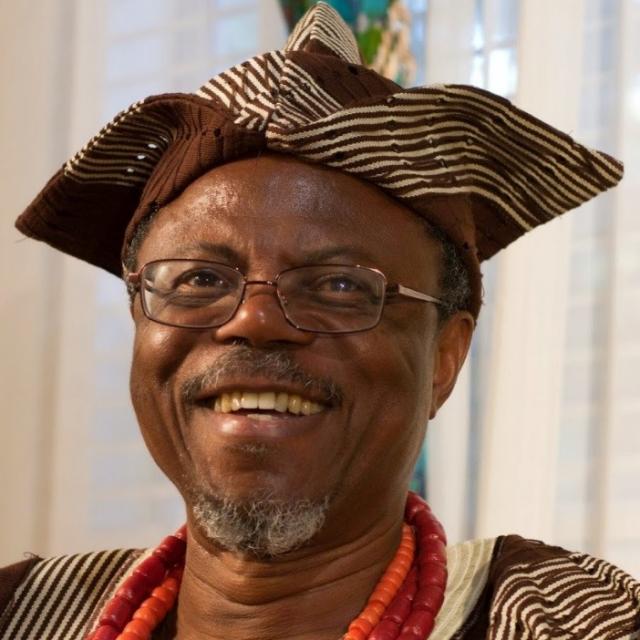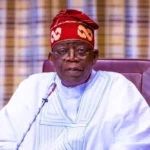Erudite scholar and foremost historian, Professor Toyin Falola, has reiterated the need for African countries to do away with corruption and its varied manifestations, insisting that corruption sabotages developments, privileges and rights of citizenship.
Falola—who is the Jacob and Frances Sanger Mossiker Chair at the University of Texas at Austin —said if Nigeria and the rest of Africa would realize their potential and full capacities then the rights and privileges of every citizen must be guaranteed.
This formed part of his submission while being celebrated during a conference convened in his honor by the African Humanities Research and Development Circle in affiliation with the University of Nigeria, Nsukka, and the Alex Ekwueme Federal University, Ndufu-Alike, Ebonyi State. Professor Egodi Uchendu and Dr Chukwuemeka Agbo were the lead conveners of the event. The conference which was held from February 19 to 21, 2024, at the Alex Ekwueme Federal University, Ndufu-Alike, Ebonyi State, Nigeria, drew members of the public and the academic community.
In his lecture on citizenship, Falola noted that in Nigeria, there is corrupt leadership without accountability. For him, “There is no adult in Nigeria who has not been affected by this. Money to ensure citizens’ rights and privileges has been stolen. Corruption sabotages development, privileges, and rights of citizenship. This is a major challenge. There is representation without transparency. Our lawmakers are not representing us; they are representing themselves. Their salaries are humongous. Their privileges are out of proportion to the nation’s resources; they are not humble; they flaunt their wealth. They don’t care about their citizens and you can see that as people are hungry, they are interested in making more money. They have no conscience. We have to use the most extreme language to describe this generation of politicians.
“There are promises without fulfillment. Tinubu ran as ‘emilokan’, but look at what he is doing now. His son-in-law is the big boss of the Federal Housing Authority. You have to have no shame to do that. As we consider citizenship in the Nigerian situation, four issues are important. Do we have a social contract? It only exists on paper in which the state is now saying it doesn’t owe you anything but the state owes you something as a citizen. At the very minimum, the state should owe you security. Part of the food challenges includes inflation but people cannot go to their farms in Zamfara, parts of Sokoto, Borno states. If they cannot go to their farms, what food will be available to consume? If the social contract is broken what are the citizens expected to do? No amount of police officers and the army can solve the problem if you don’t give them food. Are we not in an age where we can say that we do not have to define citizenship by birth and state solely? Must we be permanently locked to our place of birth and why do we limit opportunities to state of origin? Why can’t a Fulani mathematician teach at Ibadan? Why can’t a Hausa man become a chief in Ibadan? When I was born with some people who were born in Sabo (a Hausa-dominated suburb in Ibadan), they had never left Ibadan in their entire lives. Why can’t that person be a governor of Oyo State? It was his parents who told him that he is Hausa; he doesn’t even know. Why do we limit opportunities to people? Why can’t I be a professor at the University of Nigeria and have an ambition to be a vice chancellor? What is wrong with that? With due respect, Nigerian scholars have also joined in this problem in which we deny our colleagues opportunities because of their state of origin. This is sad. Who owns Lagos?
“If you enjoy Afrobeats, they combine Igbo with Yoruba to produce great songs. They were born there and we have turned citizenship into politics. You can hear people bearing Chukwuemeka in Lagos or Burnaboy but they have never left Lagos. They speak Yoruba. I have a friend who is Yoruba but he has an Igbo name. The first time he would go to an Igbo land was in his 40s when he went to bury his mum. We must re-think all of these paradigms because they are not working. Why don’t we provide opportunities for everyone to compete? We must rethink federalism, and restructuring in Nigeria without saying we want to break up. There is no need to talk about breaking up the country. We can rethink the distribution of power and do consensual framing. We can say regions have equal rights. We can rethink fiscal federalism; the Ijaw people are angry. People in the Nigerian Union are very angry for different reasons. The Igbo people are angry; the Fulani are angry; the Yoruba are angry. Where everybody is angry, it means that you have to rethink that which produces their anger. Why are we producing anger all over the place?
“We must also rethink the followership. This is because the followership is also a problem. Citizens should also be blamed for the Nigerian situation. If you nourish the ambition of corruption, this becomes a problem. It is a problem when you are not seeking transparency. In some instances, you may be too poor to be active and therefore unable to create the problem. But we also have followership whose minds and attitudes are not different from those who are governing them. We have corrupt followers.”
He decried the disturbing trend of migration from Nigeria and the rest of Africa to Europe and America, saying this has been made possible by the inept leadership, anti-people policies and retrogressive economic policies. According to Falola, “Japa (migration to the West) is now a form of banishment in Nigeria in which you say that the state has become irrelevant to youths. A large percentage of youths have checked out of Nigeria and Africa. Those who remain are just living there until they get the time to leave. I am using the extreme word of banishment because the Nigerian state says to the youths “I can’t provide you with jobs, just get out.” For those who study migrations, people tend to use the successful cases for analysis; they forget that there is a large percentage of unsuccessful people. I hope you know as I am talking to you that we now have homeless Nigerians in the United States of America, and in Europe. The German Anthropological Society invited me to come and give a keynote in one of its cities. And anywhere I go, I ask for the Nigerian community or restaurant. I visited one of such restaurants and I was surrounded by many people. I didn’t know why they did. I was not hungry but as soon as I finished the small component that I wanted to eat, human scavengers came to eat my leftovers. I was shocked that human beings were scavenging for food. Many of you may not know that many of those who already left Nigeria or Africa have no jobs; they scavenge for food, many of them are homeless; many of them are not doing well; many of their relations do not know where they are in different parts of the world. In moments when they are so unsuccessful like that, they are not citizens of any country, they cannot be repatriated, they just melt. And as they melt, Africans are becoming part of what we call invisible communities. Invisible communities are citizens without an address, zip code, or relations, and it is unpleasant but we must tell ourselves the truth that we now have a large number of Nigerians who have been banished from Nigeria without committing a crime; they are not doing well where they are and there are problems.”
Speaking earlier, he told the gathering that the context of citizenship is very depressing in the Nigerian situation, noting that “It is citizenship crucifixion without resurrection, in which the state is crucifying its citizens. This concept is different from that of persecution. Political persecution refers to the cases of Nnamdi Kanu, Omoyele Sowore, and other political prisoners. This is about how in your land, you can be hungry; you can starve to death. How can a minimum income be N35,000 and a bag of rice is N75,000? Do you want the person to claim citizenship? Or if there is hunger in the land, would that food insecurity not destroy citizenship and the state itself? You cannot be a citizen and some people will be in Abuja and begin to do IMF and World Bank and say your life is not important to them. They say ‘If you like go and die’. But this death is not defined; it is not a mission of divinity, which is why I said that you are not going to resurrect after your crucifixion.
“There is also banishment without crime in the Nigerian context. If you have read Chinua Achebe’s Things Fall Apart, you will see how Achebe closed the Okonkwo story. Also, take note of how the Yoruba and other nations in Nigeria banish an offender; they state very clearly the offenses that will lead to your banishment: adultery, criminality, or theft. They won’t kill you; they would say ‘Can you pack your luggage and leave and never come back?” That is banishment. Even if you read the history of Ibadan in the 19th century, they even banished their kings and chiefs. They banished one of them and instructed him to go and live among the Ijebu people and that he should not return.”
On the foreign scene, the renowned scholar argued that geopolitics is being redefined by wars and fierce competition. “We are at a crucial time in geopolitics, and this is defined in terms of new wars, new competition, and emerging financial transactions. The Ukraine war is still ongoing; we don’t know its resolution. But if they want to resolve the war very quickly, they have to remove some portion in the South of Ukraine and give it to Russia. That will just solve the problem right away. Russia is not going to give up the Vulcan even if it means the last soldier standing. If they give part of Ukraine to Russia, you will find changing citizenship, and that is a subject that we need to talk about. Not far away from where this conference is holding is Cameroon, and the people have been saying that Cameroon should be broken into two. The Ambazonians as they call themselves are at the forefront of this. You all remember that if Biafra had succeeded, it would have been a republic with a new form of citizenship. This geopolitics is always with us. Sudan became two countries: Southern and Northern Sudan. Eritrea left Ethiopia. The point is about how wars and geopolitics can reshape what we call citizenship. You can be a Cameroonian today and wake up becoming an Ambazonian,” he said.






